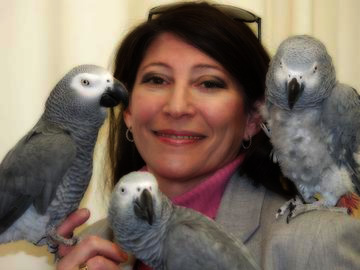
Imagine, you’re assigned a task you aren’t clear about, you’re not sure what’s wanted or what the instructions are, but it looks hard. Maybe you’re anxious about the whole thing. And to top it all off, your supervisor is getting increasingly angry at you. Finally, you think you know what the supervisor wants and you preform the task. And then your supervisor tells you angrily what a bad person you are, or worse, thwaks you in the forehead. Or they don’t do anything, just irritated silence. What have you learned? That you work for the Supervisor From Hell? You certainly don’t know if you ever preformed the task the supervisor wanted.
I see this played out repeatedly at the dog park. Someone wants their dog to retrieve a ball, but their dog is understandably distracted by all the other dogs, frisbees, etc. or may not understand. The human gets increasingly more frustrated. It comes out in their voice and their body language. Still the dog doesn’t retrieve. The human gets more frustrated. Finally, the dog brings the ball. Now is that human’s chance to praise the good. The dog did retrieve. Now is the time for a affirming Good Dog!. Instead, most dogs get scolded, some get their collar yanked, usually the best they can hope for is a Big Nothing. Without the praise, how is the dog to know that they have done what you want?
We humans are really good at reacting to behavior in our animal companions that we don’t like—pulling on the leash, scratching furniture, nipping fingers. But we often fail miserably at praising good behavior in our pets. It’s what they’re “supposed” to be doing, right? But our pets don’t always know what we want from them. And even when they do know, it’s still important to remind them and reinforce with praise. Let’s get something straight, you aren’t rewarding bad behavior. You’re rewarding the dog for retrieving even if it took a while to happen. It’s most important to reward when the dog has the hardest time doing what you want. Put yourself in his place. What would you want and need?
So, don’t just correct behaviors you don’t want. Praise and reward the behaviors you do want. This requires a shift in perspective for most of us. Our cat, Raven prefers to scratch on our couch, so when she uses a scratching box or post we throw a little praise party. Plenty of Good Girl!‘s and What a good kitty!‘s. It’s not easy to remember, but it makes a big difference. Our dog, Saffron is nervous around traffic and sometimes pulls on the leash on busy streets. So when we walk down a street with lots of traffic and she doesn’t pull, she gets a bunch of encouraging praise. And those happy looks she throws at me over her shoulder because she knows she’s doing what I want? They’re the best.
Teach your animals what you want from them. Don’t teach them that you’re the Supervisor From Hell.
 Alex, an African Grey parrot, who was the subject of 30 years of groundbreaking research on cognition and communication has died last Friday at the age of 31.
Alex, an African Grey parrot, who was the subject of 30 years of groundbreaking research on cognition and communication has died last Friday at the age of 31.